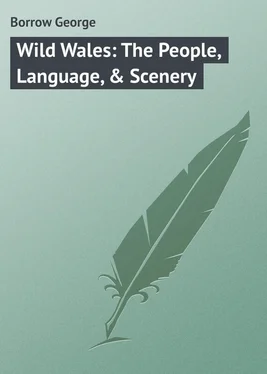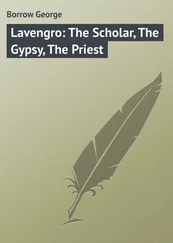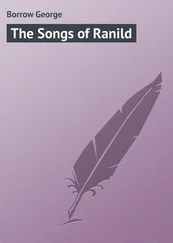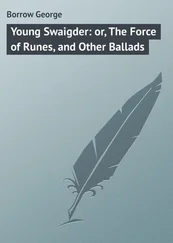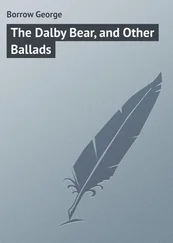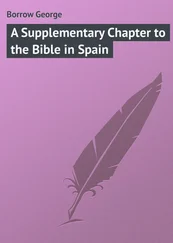George Borrow - Wild Wales - The People, Language, & Scenery
Здесь есть возможность читать онлайн «George Borrow - Wild Wales - The People, Language, & Scenery» — ознакомительный отрывок электронной книги совершенно бесплатно, а после прочтения отрывка купить полную версию. В некоторых случаях можно слушать аудио, скачать через торрент в формате fb2 и присутствует краткое содержание. Жанр: foreign_prose, Путешествия и география, на английском языке. Описание произведения, (предисловие) а так же отзывы посетителей доступны на портале библиотеки ЛибКат.
- Название:Wild Wales: The People, Language, & Scenery
- Автор:
- Жанр:
- Год:неизвестен
- ISBN:нет данных
- Рейтинг книги:5 / 5. Голосов: 1
-
Избранное:Добавить в избранное
- Отзывы:
-
Ваша оценка:
- 100
- 1
- 2
- 3
- 4
- 5
Wild Wales: The People, Language, & Scenery: краткое содержание, описание и аннотация
Предлагаем к чтению аннотацию, описание, краткое содержание или предисловие (зависит от того, что написал сам автор книги «Wild Wales: The People, Language, & Scenery»). Если вы не нашли необходимую информацию о книге — напишите в комментариях, мы постараемся отыскать её.
Wild Wales: The People, Language, & Scenery — читать онлайн ознакомительный отрывок
Ниже представлен текст книги, разбитый по страницам. Система сохранения места последней прочитанной страницы, позволяет с удобством читать онлайн бесплатно книгу «Wild Wales: The People, Language, & Scenery», без необходимости каждый раз заново искать на чём Вы остановились. Поставьте закладку, и сможете в любой момент перейти на страницу, на которой закончили чтение.
Интервал:
Закладка:
“Savage, brutish people, sir; in general without shoes and stockings, with coarse features and heads of hair like mops.”
“How do they live?”
“The men tinker a little, sir, but more frequently plunder. The women tell fortunes, and steal whenever they can.”
“They live something like the Gipsiaid.”
“Something, sir; but the hen Gipsiaid were gentlefolks in comparison.”
“You think the Gipsiaid have been frightened away by the Gwyddelians?”
“I do, sir; the Gwyddelod made their appearance in these parts about twenty years ago, and since then the Gipsiaid have been rarely seen.”
“Are these Gwyddelod poor?”
“By no means, sir; they make large sums by plundering and other means, with which, ’tis said, they retire at last to their own country or America, where they buy land and settle down.”
“What language do they speak?”
“English, sir; they pride themselves on speaking good English, that is to the Welsh. Amongst themselves they discourse in their own Paddy Gwyddel.”
“Have they no Welsh?”
“Only a few words, sir; I never heard of one of them speaking Welsh, save a young girl – she fell sick by the roadside, as she was wandering by herself – some people at a farm-house took her in, and tended her till she was well. During her sickness she took a fancy to their quiet way of life, and when she was recovered she begged to stay with them and serve them. They consented; she became a very good servant, and hearing nothing but Welsh spoken, soon picked up the tongue.”
“Do you know what became of her?”
“I do, sir; her own people found her out, and wished to take her away with them, but she refused to let them, for by that time she was perfectly reclaimed, had been to chapel, renounced her heathen crefydd, and formed an acquaintance with a young Methodist who had a great gift of prayer, whom she afterwards married – she and her husband live at present not far from Mineira.”
“I almost wonder that her own people did not kill her.”
“They threatened to do so, sir, and would doubtless have put their threat into execution, had they not been prevented by the Man on High.”
And here my guide pointed with his finger reverently upward.
“Is it a long time since you have seen any of these Gwyddeliaid?”
“About two months, sir, and then a terrible fright they caused me.”
“How was that?”
“I will tell you, sir; I had been across the Berwyn to carry home a piece of weaving work to a person who employs me. It was night as I returned, and when I was about half-way down the hill, at a place which is called Allt Paddy, because the Gwyddelod are in the habit of taking up their quarters there, I came upon a gang of them, who had come there and camped and lighted their fire, whilst I was on the other side of the hill. There were nearly twenty of them, men and women, and amongst the rest was a man standing naked in a tub of water with two women stroking him down with clouts. He was a large fierce-looking fellow, and his body, on which the flame of the fire glittered, was nearly covered with red hair. I never saw such a sight. As I passed they glared at me and talked violently in their Paddy Gwyddel, but did not offer to molest me. I hastened down the hill, and right glad I was when I found myself safe and sound at my house in Llangollen, with my money in my pocket, for I had several shillings there, which the man across the hill had paid me for the work which I had done.”
CHAPTER XV
The Turf Tavern – Don’t Understand – The Best Welsh – The Maids of Merion – Old and New – Ruthyn – The Ash Yggdrasill.
We now emerged from the rough and narrow way which we had followed for some miles, upon one much wider, and more commodious, which my guide told me was the coach road from Wrexham to Ruthyn, and going on a little farther we came to an avenue of trees which shaded the road. It was chiefly composed of ash, sycamore, and birch, and looked delightfully cool and shady. I asked my guide if it belonged to any gentleman’s house. He told me that it did not, but to a public-house, called Tafarn Tywarch, which stood near the end, a little way off the road. “Why is it called Tafarn Tywarch?” said I, struck by the name, which signifies “the tavern of turf.”
“It was called so, sir,” said John, “because it was originally merely a turf hovel, though at present it consists of good brick and mortar.”
“Can we breakfast there,” said I, “for I feel both hungry and thirsty?”
“O, yes, sir,” said John, “I have heard there is good cheese and cwrw there.”
We turned off to the “tafarn,” which was a decent public-house of rather an antiquated appearance. We entered a sanded kitchen, and sat down by a large oaken table. “Please to bring us some bread, cheese and ale,” said I in Welsh to an elderly woman, who was moving about.
“Sar?” said she.
“Bring us some bread, cheese and ale,” I repeated in Welsh.
“I do not understand you, sar,” said she in English.
“Are you Welsh?” said I in English.
“Yes, I am Welsh!”
“And can you speak Welsh?”
“O, yes, and the best.”
“Then why did you not bring what I asked for?”
“Because I did not understand you.”
“Tell her,” said I to John Jones, “to bring us some bread, cheese and ale.”
“Come, aunt,” said John, “bring us bread and cheese and a quart of the best ale.”
The woman looked as if she was going to reply in the tongue in which he addressed her, then faltered, and at last said in English that she did not understand.
“Now,” said I, “you are fairly caught: this man is a Welshman, and moreover understands no language but Welsh.”
“Then how can he understand you?” said she.
“Because I speak Welsh,” said I.
“Then you are a Welshman?” said she.
“No I am not,” said I, “I am English.”
“So I thought,” said she, “and on that account I could not understand you.”
“You mean that you would not,” said I. “Now do you choose to bring what you are bidden?”
“Come, aunt,” said John, “don’t be silly and cenfigenus, but bring the breakfast.”
The woman stood still for a moment or two, and then biting her lips went away.
“What made the woman behave in this manner?” said I to my companion.
“O, she was cenfigenus, sir,” he replied; “she did not like that an English gentleman should understand Welsh; she was envious; you will find a dozen or two like her in Wales; but let us hope not more.”
Presently the woman returned with the bread, cheese and ale, which she placed on the table.
“Oh,” said I, “you have brought what was bidden, though it was never mentioned to you in English, which shows that your pretending not to understand was all a sham. What made you behave so?”
“Why I thought,” said the woman, “that no Englishman could speak Welsh, that his tongue was too short.”
“Your having thought so,” said I, “should not have made you tell a falsehood, saying that you did not understand, when you knew that you understood very well. See what a disgraceful figure you cut.”
“I cut no disgraced figure,” said the woman: “after all, what right have the English to come here speaking Welsh, which belongs to the Welsh alone, who in fact are the only people that understand it.”
“Are you sure that you understand Welsh?” said I.
“I should think so,” said the woman, “for I come from the vale of Clwyd, where they speak the best Welsh in the world, the Welsh of the Bible.”
“What do they call a salmon in the vale of Clwyd?” said I.
“What do they call a salmon?” said the woman.
Читать дальшеИнтервал:
Закладка:
Похожие книги на «Wild Wales: The People, Language, & Scenery»
Представляем Вашему вниманию похожие книги на «Wild Wales: The People, Language, & Scenery» списком для выбора. Мы отобрали схожую по названию и смыслу литературу в надежде предоставить читателям больше вариантов отыскать новые, интересные, ещё непрочитанные произведения.
Обсуждение, отзывы о книге «Wild Wales: The People, Language, & Scenery» и просто собственные мнения читателей. Оставьте ваши комментарии, напишите, что Вы думаете о произведении, его смысле или главных героях. Укажите что конкретно понравилось, а что нет, и почему Вы так считаете.
